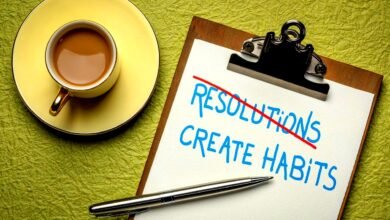How to Become More Productive Without Working Longer Hours
This guide will provide you with proven strategies to become more productive without working longer hours while maintaining a healthy work-life balance.

In today’s fast-paced world, many people believe that working longer hours equates to getting more done. However, studies show that working smarter, not harder, leads to better results. If you’re looking to become more productive without sacrificing your personal time, you’ve come to the right place. This guide will provide you with proven strategies to increase your output while maintaining a healthy work-life balance.
Why Productivity Isn’t About Working Longer
Before diving into actionable steps, it’s essential to understand that productivity isn’t about how many hours you work; it’s about how effectively you use your time. Research by Stanford University found that productivity per hour declines sharply when a person works more than 50 hours a week. After 55 hours, productivity drops so much that putting in more time is essentially pointless.
This means that to truly become more productive, you must focus on working efficiently, managing your energy, and optimizing your workflow.
1. Master the Art of Time Management
One of the foundational skills to become more productive is time management. Without a structured approach to your day, it’s easy to lose precious minutes (and hours) to distractions and inefficiencies.
Plan Your Day the Night Before
Spending just 10 minutes each evening planning your next day can boost productivity dramatically. Create a prioritized to-do list, highlighting the top three tasks you must complete.
Time Blocking
Use time blocking to schedule tasks during specific parts of the day. Allocate uninterrupted blocks of time for deep work, and reserve slots for meetings, calls, and emails.
2. Set SMART Goals
Setting clear goals is essential to become more productive. Vague ambitions like “get more done” are not helpful. Instead, adopt the SMART framework:
- Specific: Clearly define what you want to accomplish.
- Measurable: Identify how you will measure success.
- Achievable: Set realistic goals based on available resources.
- Relevant: Ensure the goals align with your broader objectives.
- Time-bound: Establish a deadline to create urgency.Having SMART goals ensures you stay focused and avoid wasting time on non-essential tasks.
3. Eliminate Distractions
A major barrier to becoming more productive is distraction. In the digital age, interruptions are everywhere — from smartphone notifications to endless emails.
Tips to Minimize Distractions
- Turn off non-essential notifications.
- Use apps like Freedom or Cold Turkey to block distracting websites.
- Designate a quiet workspace.
- Let colleagues and family know your “deep work” hours.
By creating an environment that supports focus, you naturally increase your work efficiency.
4. Prioritize Deep Work
Deep work refers to the ability to focus without distraction on cognitively demanding tasks. According to productivity expert Cal Newport, cultivating deep work is key to producing high-quality results quickly.
How to Foster Deep Work
- Set aside 1–3 hours daily for uninterrupted, high-focus tasks.
- Tackle challenging projects when your energy is highest, usually in the morning.
- Train your brain by gradually increasing your periods of focus.
Implementing deep work into your routine is a powerful way to become more productive without extending your workday.
5. Implement the 80/20 Rule (Pareto Principle)
The Pareto Principle states that 80% of results come from 20% of efforts. Identify which tasks yield the most significant results and focus on those.
How to Apply the 80/20 Rule
- Analyze your tasks and outcomes weekly.
- Double down on activities that drive the most impact.
- Minimize or delegate tasks with little return on investment.
This strategic approach allows you to maximize productivity while working fewer hours.
6. Automate and Delegate
You don’t have to do everything yourself to become more productive. Smart professionals automate repetitive tasks and delegate responsibilities whenever possible.
Examples of Automation and Delegation
- Use tools like Zapier to automate routine tasks.
- Delegate administrative work to a virtual assistant.
- Streamline recurring projects with templates and checklists.
Freeing up your time allows you to focus on higher-value work that requires your unique skills.
7. Take Strategic Breaks
Contrary to popular belief, working non-stop reduces productivity. Strategic breaks refresh your mind and body, making you more effective when you return to work.
The Best Break Strategies
- Use the Pomodoro Technique: Work for 25 minutes, break for 5.
- Take a walk outside to reset your mind.
- Practice mindfulness or quick breathing exercises.
Incorporating regular breaks is essential if you want to become more productive sustainably.
8. Maintain a Healthy Work-Life Balance
Work-life balance directly impacts your ability to become more productive. Overworking leads to burnout, which decreases efficiency and creativity.
Tips for a Healthy Work-Life Balance
- Set firm work boundaries: No emails after work hours.
- Make time for hobbies and personal growth.
- Prioritize sleep, exercise, and nutrition.
When you nurture your well-being, you naturally bring more energy and focus to your work.
9. Upgrade Your Skills
Investing in personal and professional development enhances your efficiency. The more skilled you are, the faster and better you can complete tasks.
How to Continually Upgrade Your Skills
- Take online courses relevant to your field.
- Read books, listen to podcasts, and attend webinars.
- Seek mentorship and feedback to accelerate growth.
Continual learning is a critical piece of the puzzle if your goal is to become more productive long-term.
10. Review and Reflect Regularly
Productivity isn’t a one-and-done achievement; it’s an ongoing journey. Regular reviews help you identify what’s working and what isn’t.
Effective Reflection Practices
- Conduct weekly reviews to assess completed tasks.
- Celebrate wins, and adjust strategies where needed.
- Set micro-goals for continuous improvement.
Reflection ensures that you stay aligned with your objectives and avoid spinning your wheels.
Final Thoughts
Learning how to become more productive without working longer hours is about adopting smarter habits, not sacrificing your time. By mastering time management, embracing deep work, minimizing distractions, and prioritizing well-being, you can dramatically boost your output while maintaining a fulfilling life.
Start by implementing just a few of these strategies and gradually build them into your daily routine. Before you know it, you’ll not only work smarter but also live better.
Remember: True productivity is not about how much you do — it’s about how much meaningful progress you make.











